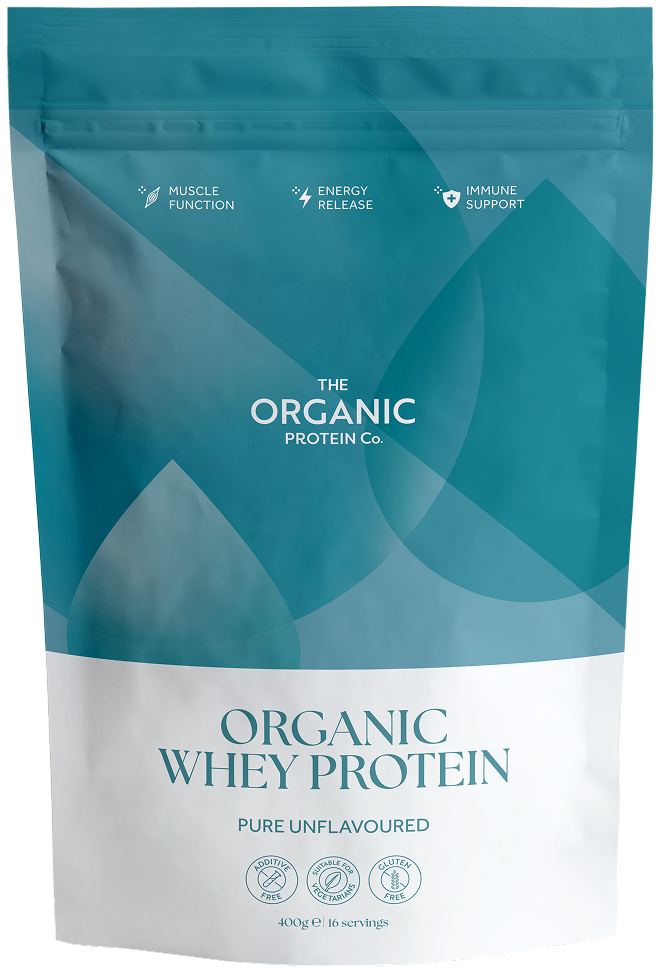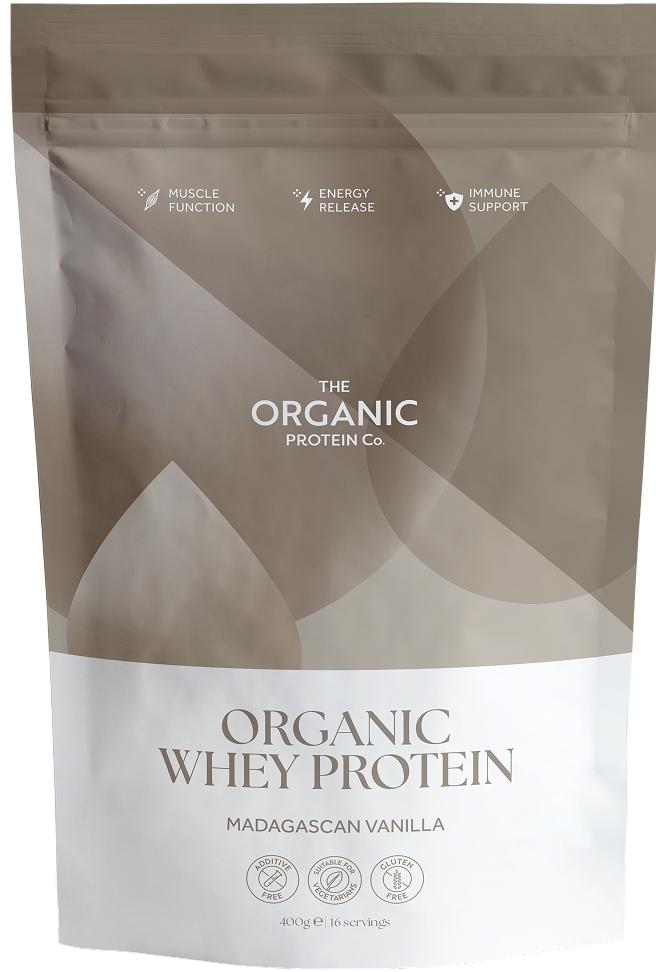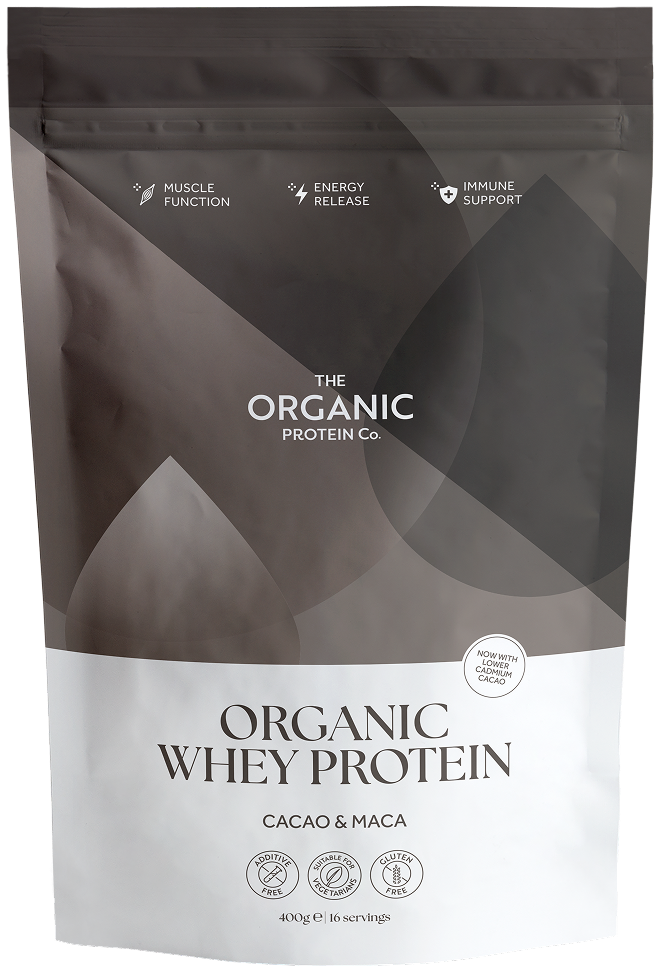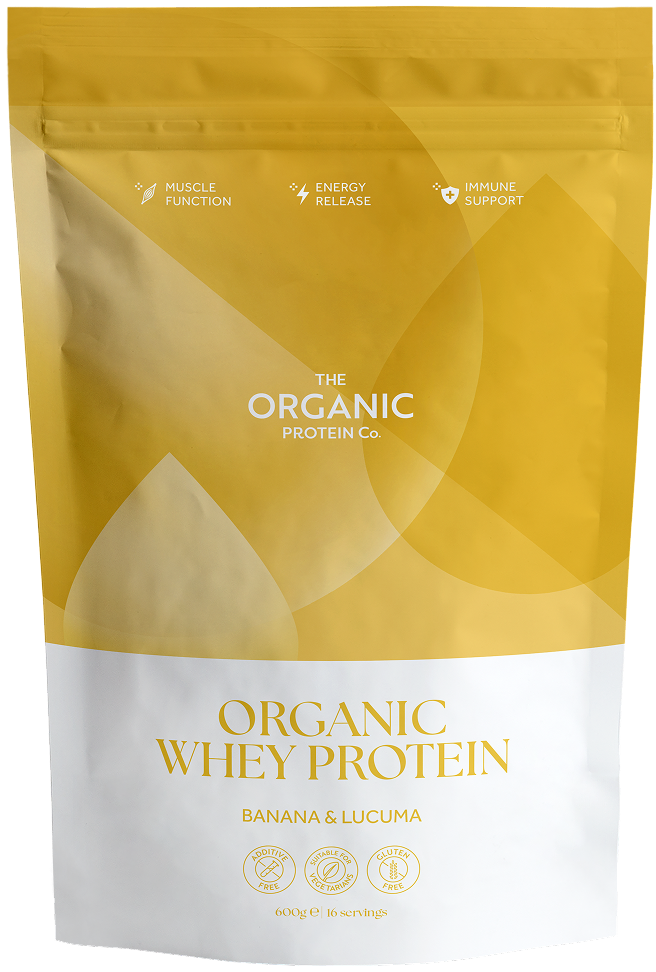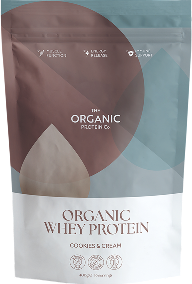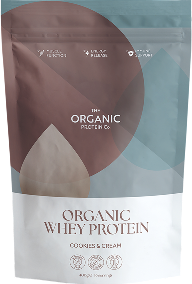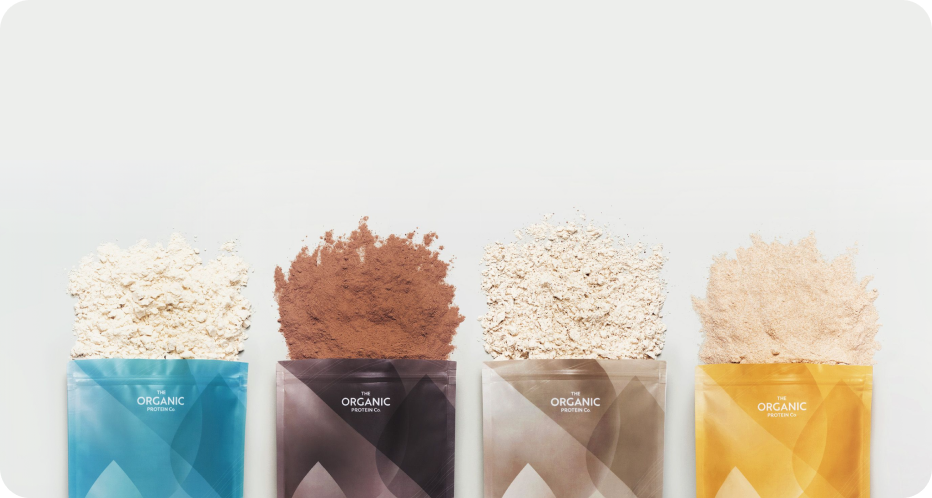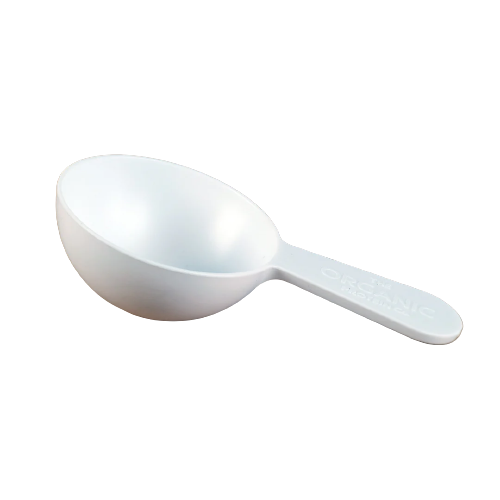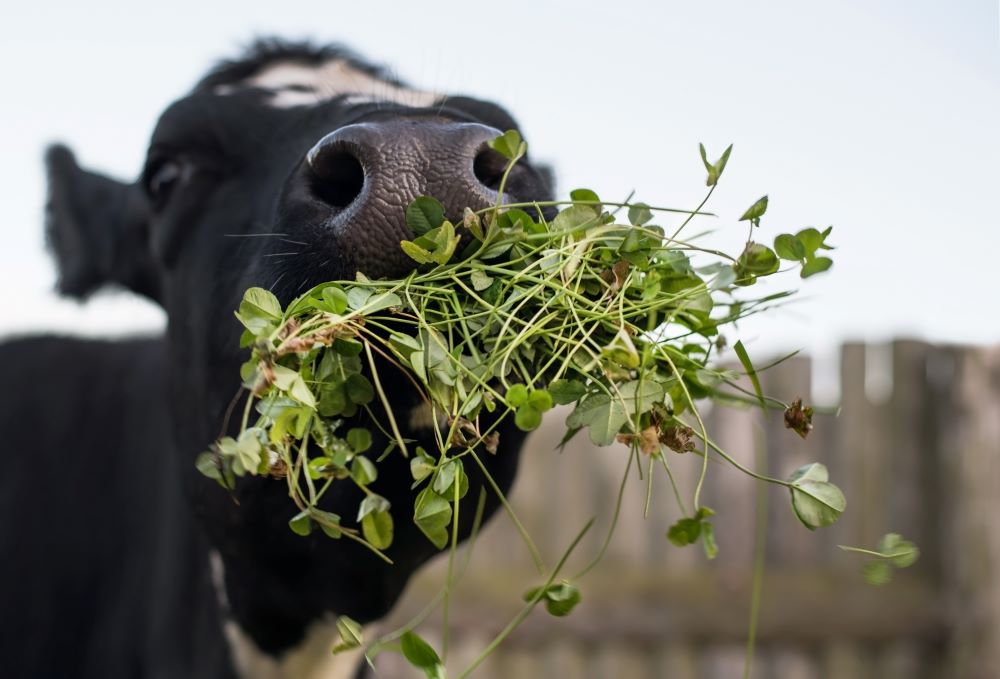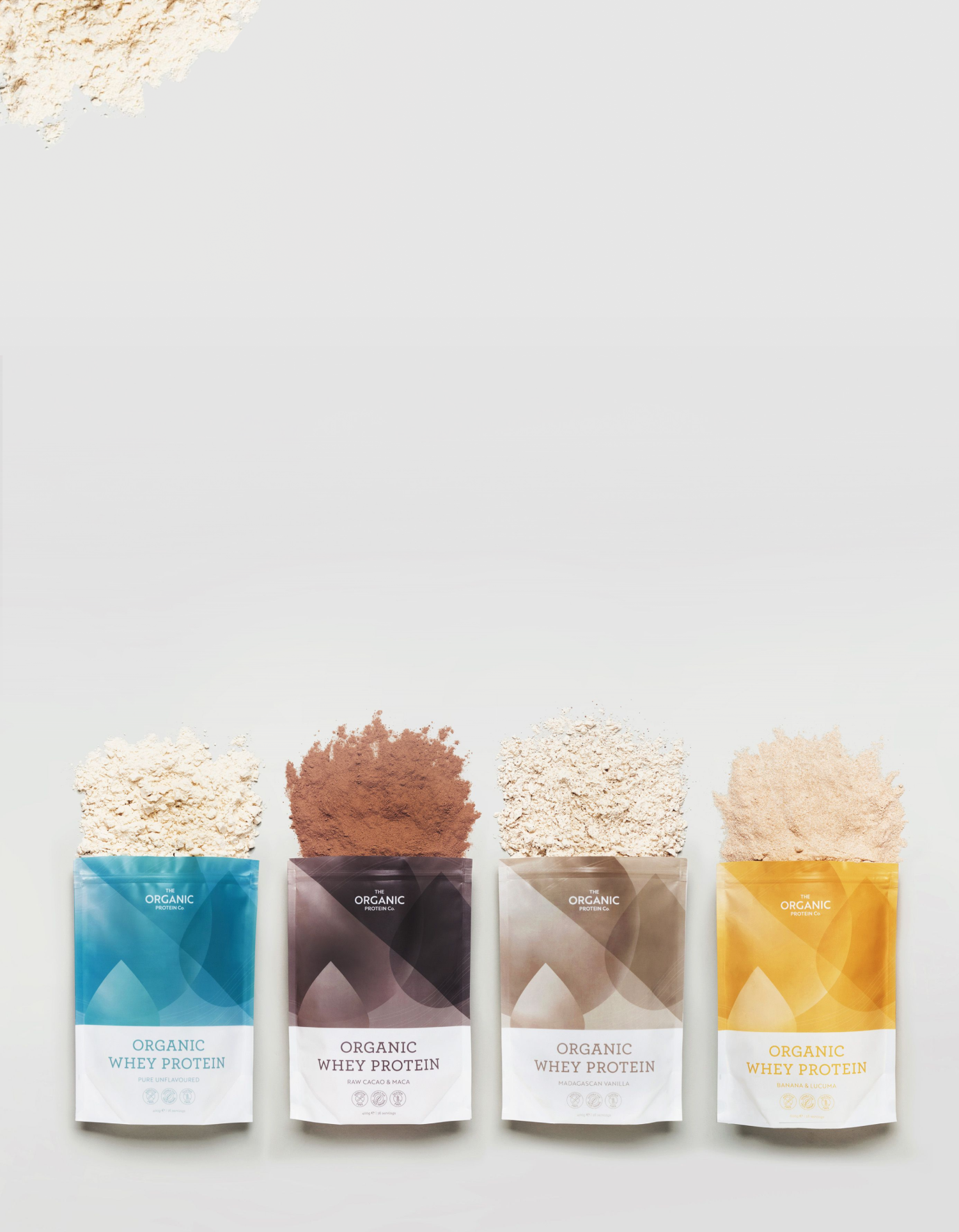Curious about what sets grass-fed protein powder apart? You might have heard the term before and know that it’s becoming a popular choice for those who prioritise high-quality nutritional sources. But what does “grass-fed” really mean, and why does it matter for your health?
In this guide, we’ll take a closer look at what grass-fed protein powder is, its benefits, and why many are choosing it over regular options. From its nutrient profile to its ethics, there’s a lot to explore, so read on to find out if grass-fed protein is the right choice for you.
Contents
Key takeaways
- Grass-fed protein powder is made from the milk of cows that primarily graze on natural pasture, resulting in a product with a richer nutritional profile.
- Nutritional benefits of grass-fed protein include higher levels of omega-3 fatty acids and conjugated linoleic acid (CLA), supporting heart health and healthy fat metabolism.
- Types of grass-fed protein powders include whey, casein, beef, and collagen, offering different benefits based on your health goals.
What is grass-fed protein powder?
The term ‘grass-fed’ is pretty self-explanatory. It typically refers to cows or other similar livestock, such as goats, and is used to refer to their meat or, in our case, their produce, such as milk and subsequently protein powder.
Grass-fed protein powder is made from the milk of cows that graze primarily on natural pasture. Unlike other dairy cows, which are raised on a diet of grains and often soy, grass-fed cows enjoy a more natural diet of grass. Grass-fed beef refers to the meat of these cows.
Grass-fed can also mean that the animals are more likely to have spent most of their life outdoors, though there are some nuances to note here.

Grass-fed vs. pasture-raised livestock
There can be some subtle differences between the terms ‘grass-fed’ and ‘pasture-raised’. While grass-fed refers to the diet of the animal in question – meaning, in theory, they should have been fed a diet of 100% grass – pasture-raised refers to where they are reared – that is, on pasture as much as possible with a diet of primarily grass.
A grass-fed cow is not always pasture-raised, and a pasture-raised cow is not always solely grass-fed – their feed may be supplemented with grains or hay. Often, it comes down to the company itself to make it clear which is true for their products.
Types of grass-fed protein powder
As grass-fed protein powders specifically refer to those which come from animals, you won’t find the term used for plant-based or vegan protein powder. There are a few types of protein powder that the term is relevant for:
- Whey protein powder: Possibly the most common grass-fed protein powder is whey protein. Derived from cow’s milk, it’s the liquid by-product of cheese-making and contains all nine essential amino acids, making it a complete protein.
- Casein protein powder: Casein is another protein powder which comes from cow’s milk. It digests at a slower rate than whey protein, providing a gradual supply of amino acids to the body over several hours.
- Beef protein powder: Grass-fed beef protein powder is another complete protein option that’s made from grass-fed cows, often through a process of cooking and drying the meat, then isolating the protein.
- Collagen protein powder: Grass-fed collagen protein powder is sourced from the connective tissues of grass-fed cows. Collagen is the most abundant protein in the body and is rich in glycine, proline, and hydroxyproline.

Grass-fed vs regular protein powder: key differences
To understand exactly what grass-fed protein powder is and how it could benefit your health, comparing it with a regular protein powder can help to surface some key differences. Here’s a closer look at the main areas where these two protein sources differ, and the benefits of grass-fed protein powder:
Nutritional profile
One of the standout differences of grass-fed protein powder is its nutritional profile. Research suggests that milk from grass-fed cows tends to be higher in omega-3 fatty acids, which are linked to heart health, and conjugated linoleic acid (CLA) (1,2), which supports healthy fat metabolism amongst other health benefits. (3)
These elements are found naturally in grass, which the cows ingest, resulting in milk – and therefore protein powder – that’s rich in these beneficial nutrients. Conventional protein powders made from grain-fed cows may contain lower levels of these nutrients due to differences in diet.
Further research has shown that raising dairy cows on grass-fed grazing systems means:
- Healthier cows, which are associated with producing milk of higher quality. (Sampimon et al., 2009)
- Reduced stress in the cows, a factor that can otherwise lead to changes in milk’s protein and fat composition, impacting quality. (Razzaghi et al., 2023)

Farming and production methods
Grass-fed protein powder is often produced through more ethical farming practices as cows raised on a grass-fed diet typically spend more time on open pastures and less time in confined feeding operations. This supports animal welfare by allowing cows to engage in natural grazing behaviours. (4)
Meanwhile, grain-fed cows are often kept in more controlled environments, where they’re fed a processed diet for efficiency, which can sometimes impact their health and the quality of the milk they produce.
Why these differences matter
For many, the choice between grass-fed and regular protein powders isn’t only about nutrition. Grass-fed options support more sustainable farming and animal welfare practices, which may be more aligned with your values.
Additionally, a higher omega-3 and CLA content can offer added health benefits, making grass-fed protein powder a preferred choice for those who prioritise high-quality protein and nutrition.

Is grass-fed protein powder better for you?
Grass-fed protein powder is often seen as a premium choice which is better for you and your health. There are a few reasons it might be worth the additional cost for some:
1. Protein quality: A variety of studies show that grass-fed grazing means improved health for dairy cows, linking to the quality and protein content of milk produced, and lower stress levels which can otherwise impact milk quality and protein and fat content. (5)
2. Clean nutrition: Often, grass-fed protein powders are less processed than regular options. With fewer additives and a production process that tends to avoid synthetic fertilisers, hormones, or pesticides, grass-fed protein powder provides a more natural product that appeals to health-conscious consumers.
3. Ethical values: For individuals with strong ethical or environmental values, grass-fed protein powder can be a more sustainable choice. Grass-fed cows are typically raised in a way that aligns with more natural farming practices, often spending more time outdoors and feeding on their native diet of grass.
4. Nutritional benefits: Grass-fed protein also has advantages for active individuals who look for high-quality sources of protein to support their muscles and overall wellbeing, such as higher levels of healthy fatty acids.

How to choose a high-quality, grass-fed protein powder
When selecting a grass-fed protein powder, looking for a product that aligns with high-quality, ethical standards is key. Here are a few pointers to help you make an informed choice:
Look for certifications
Organic certifications add another layer which indicates a commitment to quality and transparency. An organic certification, for instance, means the protein powder is free from synthetic pesticides, fertilisers, and other unwanted chemicals, and the cow has been reared with plenty of space on open pastures where the weather allows.
Choose additive-free, minimally processed options
A good-quality grass-fed protein powder is often cold-processed or minimally heated to preserve its natural nutrient profile, ensuring you get a product as close to its original form as possible.
If it’s certified organic, this will likely also mean that it's free from artificial ingredients such as sweeteners, preservatives, or fillers, meaning you’ll get all the benefits of the protein without the negatives of ultra-processing.
Check labels for sourcing transparency
Reputable brands are transparent about their sourcing, often specifying whether the protein powder comes from grass-fed and pasture-raised cows. Look for details about where the cows are raised and if they follow farming practices that prioritise animal welfare.
Is grass-fed protein powder right for you?
Grass-fed protein powder offers a range of potential benefits, from a richer nutrient profile and clean sourcing to alignment with ethical and environmental values. With its higher omega-3 and CLA content and general absence of synthetic additives, grass-fed protein can be a compelling choice for those focused on wholefood, high-quality nutrition.
When deciding if grass-fed protein powder is the right fit, consider your health, fitness, and lifestyle goals. Grass-fed protein powder brings a natural and high-quality option that aligns with a more mindful approach to your health.

